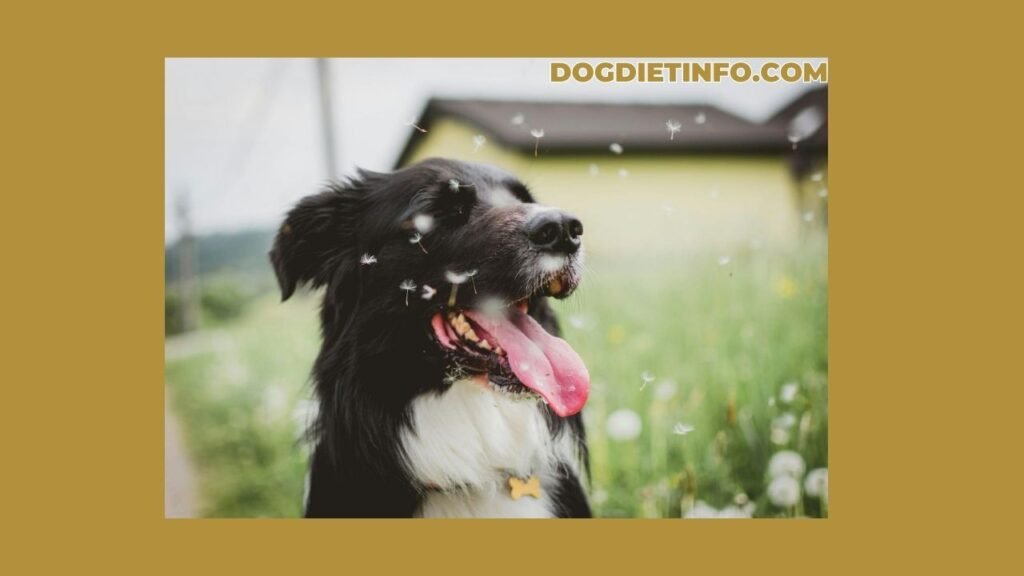Is Mullein Safe For Dogs? Mullein is generally considered safe for dogs in moderation, particularly in herbal remedies for respiratory issues.
As pet owners increasingly turn to natural remedies to promote their dogs’ health and well-being, mullein has emerged as a popular choice.
This herb is best known for its effectiveness in treating respiratory issues, but questions remain about whether it is safe to use with dogs.
In this detailed article, we’ll explore what mullein is, its potential benefits and risks for dogs, how to safely administer it, and the best practices for incorporating it into your dog’s care routine.
Contents
What Is Mullein?
History of Mullein in Herbal Medicine
Mullein (Verbascum thapsus) has been utilized in herbal medicine for thousands of years. Its history can be traced back to ancient civilizations, where it was valued for its ability to soothe respiratory conditions, reduce inflammation, and relieve pain.
Ancient Greeks and Romans believed that mullein had supernatural properties and used it in rituals as well as for medicinal purposes.
Over time, mullein became widely known as a traditional remedy in both Europe and Asia. Today, it remains a staple in many cultures for treating coughs, bronchitis, and other lung-related ailments.
This herb can be consumed as a tea, applied topically as an oil, or even smoked to treat respiratory issues. [Is Mullein Safe For Dogs?]
For humans, mullein has a well-documented track record of safety, but its effects on dogs require careful consideration.
Mullein Plant Overview
Mullein is a tall biennial plant, often identified by its woolly leaves and tall, yellow flowering spikes. It thrives in well-drained soil and can often be seen growing in fields, along roadsides, or in abandoned areas. [Is Mullein Safe For Dogs?]
The plant’s medicinal parts include its leaves and flowers, which contain saponins, flavonoids, and other compounds that provide anti-inflammatory, antimicrobial, and expectorant properties.
Mullein can be used in various forms: dried leaves for tea, oil for topical application, tinctures, and capsules. Each form offers specific benefits, and knowing which is best suited for your dog is crucial for safety and effectiveness.
Is Mullein Safe for Dogs?
Potential Benefits of Mullein for Dogs
Mullein is primarily recognized for its respiratory benefits, making it an appealing option for dogs suffering from conditions like kennel cough, asthma, or bronchitis.
The herb’s expectorant properties help loosen mucus, allowing dogs to expel phlegm more easily, while its anti-inflammatory effects can soothe irritated airways.
Additionally, mullein oil is widely used for ear infections in dogs. Its antimicrobial properties help kill bacteria, while its anti-inflammatory qualities reduce swelling and discomfort in the ears.
Mullein has also been studied for its potential immune-boosting effects, which could be beneficial for dogs recovering from illness.
Recommended Forms of Mullein for Dogs
When giving mullein to dogs, the form in which it is administered plays an important role. [Is Mullein Safe For Dogs?]
The most common forms include mullein tea, mullein tinctures, capsules, and mullein oil for topical use. The right form depends on what you are treating.
- Mullein Tea: This is one of the safest methods for administering mullein to dogs, especially for respiratory issues. The tea can be added to your dog’s water or food in small amounts.
- Mullein Tincture: Tinctures are more concentrated than tea, so dosage is key. Always ensure that the tincture you are using is alcohol-free, as alcohol can be harmful to dogs.
- Mullein Capsules: If you opt for capsules, it’s crucial to make sure the dosage is appropriate for your dog’s size and health condition. It’s advisable to consult with a vet before using capsules.
- Mullein Oil: Mullein oil is ideal for treating ear infections. It is applied topically in the ears, helping reduce inflammation and fight infections.
Risks and Precautions
While mullein is generally regarded as safe for dogs, it’s important to take several precautions. Allergic reactions, though rare, can occur. [Is Mullein Safe For Dogs?]
Symptoms of an allergic reaction may include itching, swelling, vomiting, or diarrhea. If your dog displays any of these signs after consuming mullein, discontinue use and consult your vet immediately.
Mullein should also be avoided in pregnant or nursing dogs unless recommended by a vet, as there is limited research on its effects on pregnant animals.
Additionally, it’s crucial to ensure that the mullein product you’re using is free of contaminants or additives, which could harm your pet.
Veterinary Recommendations
Before introducing mullein or any other herbal remedy into your dog’s routine, it’s important to consult with a veterinarian.
Your vet can provide insight into whether mullein is appropriate for your dog based on their age, breed, size, and overall health. In some cases, your vet may suggest alternative treatments that are better suited to your dog’s condition.
A vet can also help you determine the correct dosage, as improper use of mullein could lead to side effects. [Is Mullein Safe For Dogs?]
For instance, too much mullein tea could cause digestive upset, while excessive use of mullein oil might irritate your dog’s ears.

How to Use Mullein for Dogs
Mullein Tea Preparation for Dogs
Preparing mullein tea is a simple and effective way to treat respiratory conditions in dogs. To make the tea, steep one teaspoon of dried mullein leaves in hot water for 10 minutes.
Allow the tea to cool completely before giving it to your dog. You can add one to two teaspoons of the cooled tea to your dog’s water bowl or mix it into their food once or twice a day, depending on the severity of their condition.
Be sure to monitor your dog closely for any adverse reactions when introducing mullein tea into their diet. If your dog seems to tolerate it well, you can continue use until their symptoms improve.
Mullein Oil for Ears
Mullein oil is particularly useful for dogs suffering from ear infections. To use, warm the oil slightly (making sure it’s not too hot), and apply a few drops directly into the affected ear.
Gently massage the base of the ear to help the oil reach deeper parts of the ear canal. Mullein oil can be used up to twice daily, but always consult your vet first, as not all ear infections respond to herbal treatments.
Mullein Supplements
Mullein supplements are another option for dogs, available in capsule or tincture form. If you choose to use a supplement, ensure that it’s specifically formulated for pets and follows recommended dosage instructions.
Mullein supplements should only be used under veterinary guidance, as improper use could lead to side effects like stomach upset. [Is Mullein Safe For Dogs?]
Alternatives to Mullein for Dogs
Other Herbs for Respiratory Issues
If you’re hesitant about using mullein or if your dog doesn’t respond well to it, there are several alternative herbs that can help alleviate respiratory issues. These include:
- Thyme: Known for its antibacterial and antifungal properties, thyme is a great alternative for respiratory infections. It also acts as an expectorant, helping clear mucus from the lungs.
- Eucalyptus: While this herb must be used with caution, small doses of eucalyptus can help ease breathing issues and soothe inflamed airways. [Is Mullein Safe For Dogs?]
- Licorice Root: This herb is often used to reduce inflammation and can act as a natural remedy for coughs. However, it should be used in moderation, as long-term use can lead to side effects.
Non-Herbal Remedies
For dogs with more severe respiratory conditions, there are over-the-counter medications specifically designed for canines.
These treatments may offer faster relief than herbal remedies and are generally formulated to be safe for dogs.
Your vet may recommend medications such as decongestants or bronchodilators depending on the severity of the condition.
Final Verdict
Mullein is a beneficial herb for dogs when used correctly and in moderation. It can be especially helpful in treating respiratory issues like coughs, bronchitis, or asthma, and it also has applications for ear infections.
However, like any herbal remedy, mullein should be used cautiously and under the guidance of a veterinarian.
Improper use could lead to side effects or allergic reactions, so it’s important to start with a small dose and monitor your dog’s response.
In conclusion, mullein can be a safe and effective remedy for dogs when administered with care and proper dosage. [Is Mullein Safe For Dogs?]
Always consult your vet before introducing mullein into your dog’s health routine to ensure its safety and efficacy.
See Also: Are Leather Couches Good For Dogs?
FAQs
Can mullein be toxic to dogs?
Mullein is generally non-toxic when used properly. However, large amounts could cause digestive issues, so it’s important to follow recommended guidelines. [Is Mullein Safe For Dogs?]
How much mullein can I give to my dog?
The dosage depends on the size and health of your dog. Start with small amounts, such as one teaspoon of mullein tea, and consult your vet for specific recommendations.
What are the signs of an allergic reaction to mullein in dogs?
Symptoms may include itching, swelling, vomiting, or diarrhea. If you notice these signs, stop using mullein and contact your vet immediately.
Are there any alternative herbs to mullein for respiratory issues?
Yes, thyme, eucalyptus, and licorice root are alternatives that can help alleviate respiratory problems. Consult your vet to determine which option is best.
Can I use mullein oil directly in my dog’s ears?
Yes, mullein oil is often used to treat ear infections. Be sure to warm the oil slightly and apply it carefully, but always check with your vet before using it.
Conclusion: Is Mullein Safe For Dogs?
Mullein can serve as a natural and effective remedy for dogs dealing with respiratory conditions or ear infections, but it should be used with caution.
Always consult your vet before introducing mullein or any herbal remedy into your pet’s care routine to ensure that it’s safe and appropriate for your dog’s specific needs.

Derrick Wilcox is a certified canine behaviorist with over 12 years of experience at Happy Paws Animal Clinic and Pawsitive Training Center, helping pet owners ensure safer, healthier, and happier lives for their dogs.



